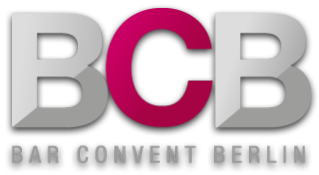The Art of Conversation
© Shutterstock
Angus Winchester tells us how important social skills are for a bartender and how to practice your small talk skills.
The phrase "We have spent 15 years training bartenders how to be mixologists and now we have to train them how to be bartenders " circulates among older bar managers and bar trainer, implying that while the current generations of bartenders are immeasurably better technically than previous ones and their creativity is off the charts, you wouldn't want to be stuck in an elevator with many of them. The mantra "No-one cares how much you know until they know how much you care" seems to have been lost somewhere along the way, and occasionally – when I've been drinking bourbon – I scare the bartender who made my delicious drink by asking him to tell me a joke....
Bartenders were like DJs
Bartenders in the past didn't have to have the skills of today's mixologists. When I started in the industry 30 years ago, cocktails were rarely ordered and bars were empty as hell compared to today. Bartenders were usually hired for their social skills, not their technical skills. When I worked in New York in the 90s, bartenders were like DJs who bought their own crowd for the various regular shifts in town, but they were all screenwriters, comedians, models and actors who could hold their own behind the bar and connect with people.
Skills for life
I often talk about how I believe hospitality skills are actually life skills, and that working in the industry gives smart people the opportunity to take advantage of the many opportunities every night to practice and hone those skills. From "selling," which is influencing a person's behavior, to making an impression, to building likeability and beyond. If you're good at it, you'll do better in life. And in the meantime, it's good business.
Build relationship with guests
I started working with my young and quite talented team on improving some of these skills, especially the way they communicate with guests. First, I explained to them that we need to talk to our guests and build a relationship with them so that they feel comfortable, welcome, important and understood. That's why we need to find common ground with the guest. And the best way to do that is to ask good "open questions" that give the guest the opportunity to reveal information about themselves instead of just answering "yes" or "no."
Tips for successful conversation
Also, before the shift, I gave them some information they could use. From national/international/world days to, for example, interesting facts about a drink or a bottle – just anything they could use to have a conversation. I also explained to them that many smart bartenders read a newspaper before going to work, and that they should know enough to have a conversation with someone they've never met. The art of conversation is getting the other person to talk about something they enjoy. This is how a well-read bartender who can start a conversation becomes a good bartender.
In addition, I asked my teammates to practice – and not just in the workplace. For example, they were asked to start a conversation with a stranger at a bus stop, while waiting for an elevator, or with a salesperson while shopping. And I also asked them to share their best lines with other team members so we could learn from each other.
Practice makes perfect
Finally, I have shown them the effect of these trained skills. I stand at the bottom of a staircase and greet people in my bar and ask them how they're doing. They (usually) ask the same thing, and I reply, "I am ridiculously well" and nine times out of ten, people smile and make a comment. And with that simple phrase, I welcomed people, made them smile, and gave them a positive impression. It took a few weeks to try out wording and timing, but staff say guests notice and developed their own practices.
Maintaining balance
It's not for nothing that the bartender is often portrayed as a fatherly or motherly figure, lending a sympathetic ear and offering sage advice when needed. Drinks are only part of the experience in a bar or restaurant, and a large part of that experience is determined by your team. While skills and professionalism in our industry have certainly increased massively over the past 20 years, we must be careful to continue to balance skilled mixologists with excellent hosts and continue to strive to provide remarkable hospitality to our guests. Because as we all know, while we serve cocktails and amazing drinks, we are first and foremost people serving other people.
Bar ohne Namen
Entschlossen verweigert sich Savage, der Bar einen Namen zu geben. Stattdessen sind drei klassische Design-Symbole das Logo der Trinkstätte in Dalston: ein gelbes Quadrat, ein rotes Viereck, ein blauer Kreis. Am meisten wurmt den sympathischen Franzosen dabei, dass es kein Gelbes-Dreieck-Emoji gibt. Das erschwert auf komische Weise die Kommunikation. Der Instagram Account lautet: a_bar_with_shapes-for_a_name und anderenorts tauchen die Begriffe ‘Savage Bar’ oder eben ‚Bauhaus Bar‘ auf.
Für den BCB bringt Savage nun sein Barkonzept mit und mixt für uns mit Unterstützung von Russian Standard Vodka an der perfekten Bar dazu.
